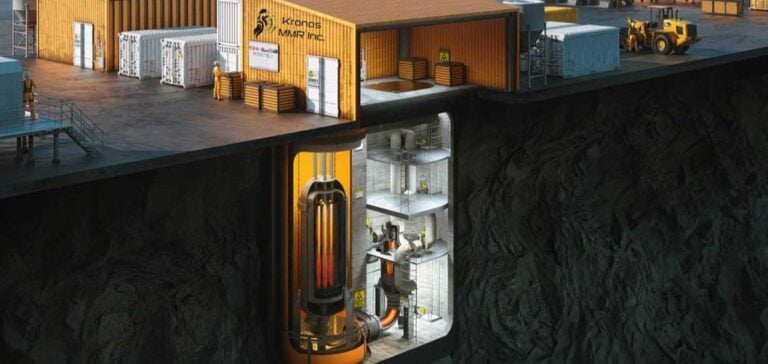NANO Nuclear Energy Inc., a specialist in advanced nuclear energy solutions, announced significant progress for its micro modular nuclear reactor, the KRONOS MMR™. Designed to deliver thermal power of up to 45 MWt, this system aims to meet the growing demands of strategic industries such as data centers and artificial intelligence applications.
Developed with the support of Canadian partners, the KRONOS MMR™ has achieved a major milestone by becoming the first small modular reactor to undergo evaluation by the Canadian Nuclear Safety Commission. This regulatory validation allows the project to continue its development at Chalk River, where it is expected to contribute to strategic energy initiatives.
Technology and Objectives
The KRONOS MMR™ stands out for its operational flexibility and compact footprint, requiring less than 5 acres. Capable of utilizing low-enriched uranium (LEU) or high-assay low-enriched uranium (HALEU), it is tailored to meet the diverse needs of international regulations and energy-dependent sectors. Its potential applications include high-efficiency hydrogen production and support for digital infrastructure.
Integrating this technology into NANO Nuclear’s portfolio is also strategic for the North American market, with certification efforts ongoing with the U.S. Nuclear Regulatory Commission. These initiatives aim to accelerate commercialization and position the KRONOS MMR™ as a central element of the energy transition.
International Perspectives
Although primarily developed in Canada, the KRONOS MMR™ benefits from international academic and industrial support. The University of Illinois at Urbana-Champaign plays a key role in demonstrating its high technological readiness. New partnerships are under consideration to strengthen the impact of this energy solution in regions with high industrial energy demand.
In parallel, strategic collaborations are being explored to expand the use of this reactor beyond North American borders, targeting energy-intensive markets. This approach aligns with a global vision to provide reliable, efficient, and low-carbon energy solutions.






















